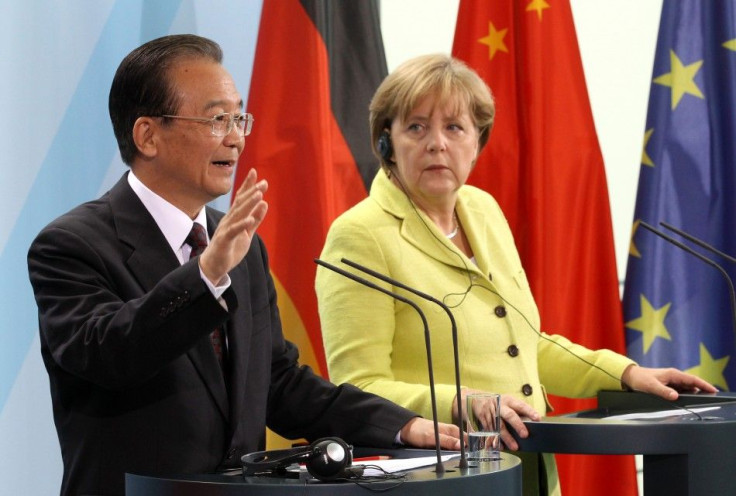China and Germany Sign Huge Trade Deals

On the final stop of a five-day visit to Europe, the Prime Minister of China Wen Jiabao has signed a huge multi-billion euro trading agreement with Germany.
The slew of deals, estimated to be valued at about $15-bilion include the purchase of 88 Airbus A320 aircraft by China; and a pact for Germany to manufacture electric cars in China.
Germany, Europe’s largest and most powerful economy is perfectly positioned to help modernize China through the sale of world-class high-technology products. The two nations also agreed to form a system whereby government officials will periodically meet to discuss a wide range of subjects, including investment and trade, but also such topics as human rights, environmental concerns and security.
According to reports, China, now the world’s number one exporters, is also Germany’s third-biggest trading partner, after France and the Netherlands (and ahead of the U.S.).
“A new chapter has been built,” Germany’s Chancellor Angela Merkel said during a joint news conference with Wen.
The relations between Germany and China were seriously endangered in 2007, when Merkel met with the Dalai Lama, the exiled Tibetan spiritual leader. At the time, China threatened to retaliate by withholding lucrative contracts from the Germans.
Since that near-rupture Merkel has focused more on trade relations with China.
She now estimates that Germany’s bilateral trade with China could more than double to $285 billion by 2015.
“China respects the European political system,” Wen said at a German business forum. “On the other hand, we expect respect for China’s system and China’s territorial integrity.”
Still, there remain many contentious issues between Beijing and Berlin, some of which Merkel reportedly discussed with Wen during their talks. Among them, technology transfer, in which China allegedly copies foreign machines and remakes them as their own. Another difficult problem has to do with intellectual property rights.
German firms are also worked about how Chinese companies are subsidized when they do business in foreign countries, particularly in Eastern Europe.
© Copyright IBTimes 2025. All rights reserved.





















